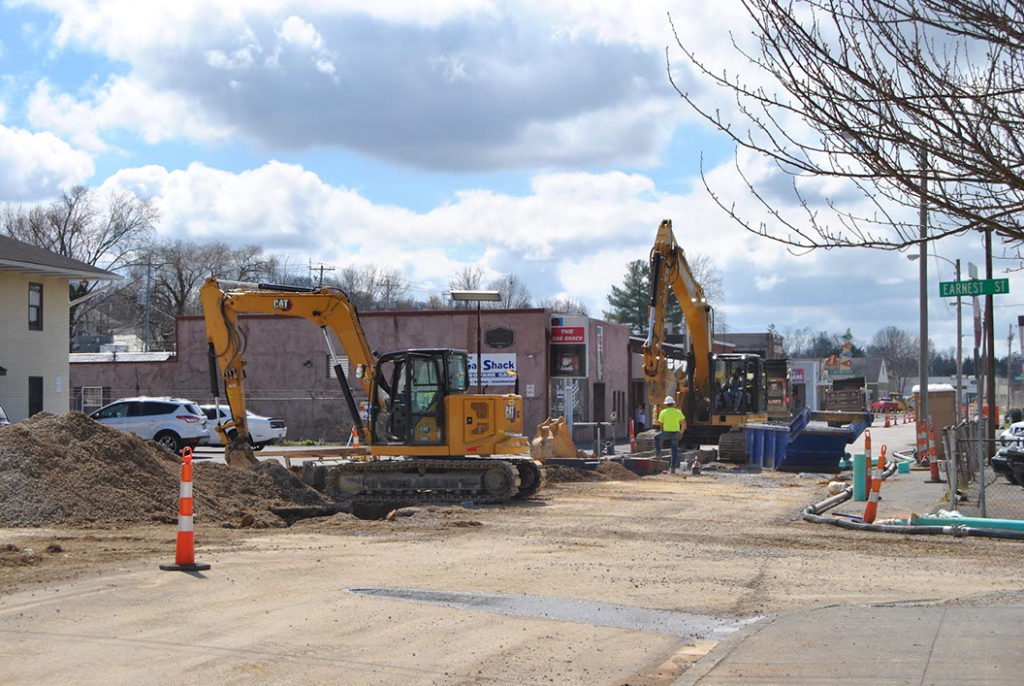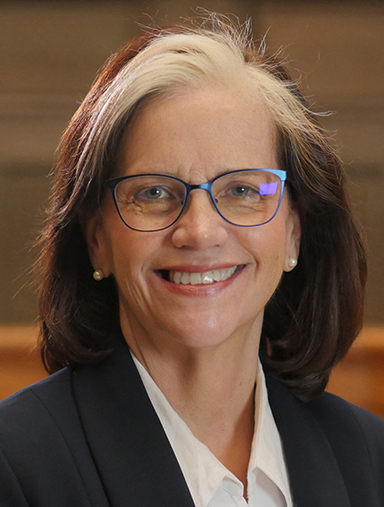
By Dave Ongie, Managing Editor
When Cathy Ball was pondering a move over the mountains from Asheville to Johnson City last year, she dug in and started doing her research.
What she found was a community that had a lot of things going for it, and Ball wasn’t alone. An influx of new residents are finding quality schools, a regional university, the VA, quality medical care, abundant natural beauty and a low cost of living to be an irresistible combination.
“I think there are so many attractive qualities of the community that make it a desirable place to move to in today’s world,” Ball told the News & Neighbor last Monday. “I think what the trends are showing is people are really picking where they want to live and then finding jobs in those locations because they can.”
In Ball’s case, the job she found in Johnson City was that of City Manager. Ball replaced Pete Peterson last December when Peterson retired after a lengthy career with the city.
Ball is no stranger to our region as she was born and raised in Unicoi County. After attending Tennessee Tech, she started her professional career with an engineering consulting firm in Johnson City before moving on to Greenville, South Carolina and eventually Asheville.
After three months on the job, Ball and other city leaders are bracing for population growth. She estimates that approximately 1,800 units have been approved on her watch as part of apartment, condo or townhouse developments as builders try to keep up with the demand for affordable housing. As a result, the city is doing its part to stay ahead of the curve.
“We know they’re coming through the pipeline, so we’re preparing to make sure the infrastructure is in place in terms of roadways and things like that,” Ball said.
Infrastructure is a high priority for Ball, and she has been impressed with what she has seen from the projects Johnson City has either completed or is in the process of completing. Ball pointed out the West Walnut Street project as a prime example of a community investing to ensure stormwater, sewer and water lines were built for the long haul.
“When I first learned of the project, being a civil engineer, I understood this community valued infrastructure,” she said. “Oftentimes there is a temptation to cut corners and to only do what people can see. It demonstrated to me the community knew how to do it right so it would be sustainable for a very long period of time.”
The West Walnut Street project is seen as a crucial connector between ETSU and Johnson City’s revitalized downtown district. Ball is pleased to see the corridor will be suitable for foot and bike traffic, which will make downtown more accessible to students on ETSU’s campus.
Creating easier access between ETSU and downtown Johnson City will obviously help businesses located downtown, but Ball said strengthening the ties between ETSU students and Johnson City will be a crucial part of the city’s growth. Conversations are happening between city officials and ETSU officials to develop pipelines to employment both with the city and with private businesses located here.
“What I hear is that when people come to school here, they want to stay,” Ball said. “They’re very attracted to Johnson City so (we have to) create those opportunities where they can come and do internships while they’re still in school so they’re able to get a foot in the door and they’re able to see what they can do here. That’s something we’re figuring out how to do.”
Since property tax collections and local option sales tax combined to make up about 60 percent of Johnson City’s General Fund revenue each year, the population growth currently taking place is a welcomed sight for city leaders. A boom in sales tax collections has also been a pleasant surprise for the city after leaders braced for potential negative sales tax growth at the outset of the COVID-19 pandemic.
The focus moving forward will be to help create an environment where businesses can flourish, which will help fortify the twin funding sources Johnson City depends so heavily upon. A continued effort to increase tourism while further developing the downtown district is also crucial for ensuring the fiscal stability of the city.
Ball believes her 24 years of experience in Asheville will prove valuable as Johnson City looks to balance the needs of a burgeoning tourism market and its own citizens.
“I was able to see what went well and what didn’t go so well,” Ball said of her time in Asheville. “One of the things I look at is the opportunity in Johnson City as we grow to make sure the local folks still feel connected to downtown. We understand we can benefit from having tourism, but it doesn’t mean it’s going to take away from our quality of life.”




